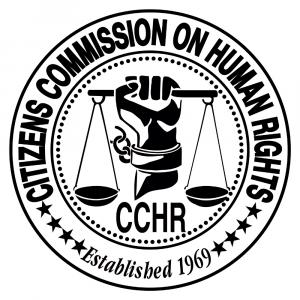Half of Negative Clinical Trial Results on Antidepressants Were Not Published or Were Spun as Positive, Researchers Find

Negative clinical trials results can be suppressed and trial data reluctantly or never shared, researchers say.

The FDA does not always get all pertinent clinical trials before approving drugs, according to published studies.

Many antidepressant drugs failed to demonstrate effectiveness in a majority of the clinical trials submitted to the FDA for drug approval, but were approved if they proved superior to placebo in just two trials – or sometimes just one.
Even the FDA does not always get all relevant clinical trials before approving drugs, according to published reports.
A recent review of clinical trials of newer antidepressant drugs found that more than half of the studies with negative results were either not published or were misrepresented as positive, leading doctors to believe that the antidepressants are more effective and less harmful than they really are.
Researchers led by Erick H. Turner, M.D., associate professor in the departments of psychiatry and pharmacology at Oregon Health and Science University, were following up on an earlier review in which published reports in the medical literature of antidepressant studies were compared to the FDA’s reviews of the studies in the drug approval process. The review focused on antidepressants approved by the FDA from December 1987 to August 2002.
Writing in the New England Journal of Medicine in 2008, researchers found that 97% of the trials with positive results were published, but only 11% of the studies the FDA found to have negative or questionable results were published, leading to a heavily biased presentation of evidence on antidepressants in the medical literature.
The current review, published in PLoS Medicine, conducted the same comparison of FDA review data with published reports, this time on antidepressants approved by the FDA from February 2008 to September 2013, and found that publication bias still exists. Of the 15 negative trials reported to the FDA, only seven were published in the medical literature as negative. Six were never published and two others were misrepresented as positive.
“The rate of transparent reporting for negative trials remains low,” the researchers wrote.
In recent editorial comments, Kamran Abbasi, M.D., editor-in-chief of British medical journal The BMJ, took critical note of the fact that clinical trial results still can be suppressed and trial data reluctantly or never shared, and that happens only if the trials are registered. However, he further observed that “trials remain unregistered, and too many are registered retrospectively.” Registering trials after their completion allows the outcomes to be framed more positively.
The passing of the FDA Amendments Act of 2007, which requires the entities conducting clinical trials to disclose the trial results on the public registry ClinicalTrials.gov, was an attempt to make complete trial information available to doctors and patients, and in language that was not false or misleading. Civil penalties for noncompliance under the law can reach $10,000 per day.
However, the results of some 3,000 trials still have not been disclosed, and the FDA has never imposed a fine, according to Till Bruckner, Ph.D., founder of TranspariMED.
Still worse, the FDA itself does not always get all relevant clinical trials before approving drugs, according to published reports.
A new study, published in the Journal of Clinical Epidemiology, reviewed applications submitted to the FDA for approval of extended-release methylphenidate for attention deficit hyperactivity disorder (ADHD) in adults. The researchers, led by Kim Boesen of the Nordic Cochrane Centre, found that clinical trials were missing in more than half of the drug applications, despite the fact that all pertinent trials were supposed to be included. This means the FDA made its approval decisions based on incomplete or select samples of clinical trials.
Writing in a new blog on the TranspariMED website, Michael P. Hengartner, senior researcher and lecturer at Zurich University of Applied Sciences, addressed the common belief that psychiatric drugs must work or they would not have been approved by the FDA or other drug regulatory agencies.
“In fact, drug regulators frequently approve drugs despite contradictory clinical trial results and are letting medicines onto the market that do not provide tangible clinical benefits to most patients,” he wrote.
Hengartner further explains: “Drug regulators do not require that a drug was shown to be effective in a majority of trials. In fact, a drug could fail in most trials, but if it was superior to placebo in at least two (occasionally even one) trials, then [approval] will be granted.”
Referring to antidepressants, Hengartner’s main field of research, he notes that “unfortunately, many antidepressant drugs failed to demonstrate efficacy in a majority of trials submitted to the U.S. Food and Drug Administration (FDA) for marketing approval.”
Even a positive trial outcome does not necessarily mean that it is clinically significant or of practical relevance to patients. “A treatment effect can be statistically significant but so small that it has no discernible impact on the patient’s health whatsoever,” Hengartner writes. “With respect to antidepressants for depression, it has consistently been found that the average treatment effect is small.”
The Citizens Commission on Human Rights (CCHR) continues to press for full disclosure of data connected to antidepressants and other psychiatric drugs, including the harms patients experience when taking and discontinuing the drugs, so that medical providers and consumers have full and accurate information for making informed decisions.
A search for the term “antidepressants” on the CCHR psychiatric drug side effects search engine [www.cchrint.org/psychdrugdangers] currently finds 283 drug studies and 155 international drug regulatory agency warnings concerning the adverse effects of antidepressants, including the increased risk of suicide and violence, when taking or discontinuing the drugs.
WARNING: Anyone wishing to discontinue or change the dose of an antidepressant or other psychiatric drug is cautioned to do so only under the supervision of a physician because of potentially dangerous withdrawal symptoms.
The Citizens Commission on Human Rights was co-founded in 1969 by members of the Church of Scientology and the late professor of psychiatry and humanitarian Thomas Szasz, M.D., recognized by many academics as modern psychiatry’s most authoritative critic, to eradicate abuses and restore human rights and dignity to the field of mental health. Since then, CCHR has helped obtain more than 228 laws that protect mental health patients.
The CCHR National Affairs Office in Washington, DC, has advocated for mental health rights at the state and federal level. The CCHR traveling exhibit, which has toured 411 major cities worldwide and educated over 800,000 people on the history of abusive psychiatric practices up to the present time, has been displayed in Washington, DC, at the Congressional Black Caucus Foundation Annual Legislative Caucus and other locations.
Anne Goedeke
Citizens Commission on Human Rights, National Affairs Office
+1 202-349-9267
email us here
Visit us on social media:
Facebook
CCHR: Antidepressant Warning
Legal Disclaimer:
EIN Presswire provides this news content "as is" without warranty of any kind. We do not accept any responsibility or liability for the accuracy, content, images, videos, licenses, completeness, legality, or reliability of the information contained in this article. If you have any complaints or copyright issues related to this article, kindly contact the author above.

